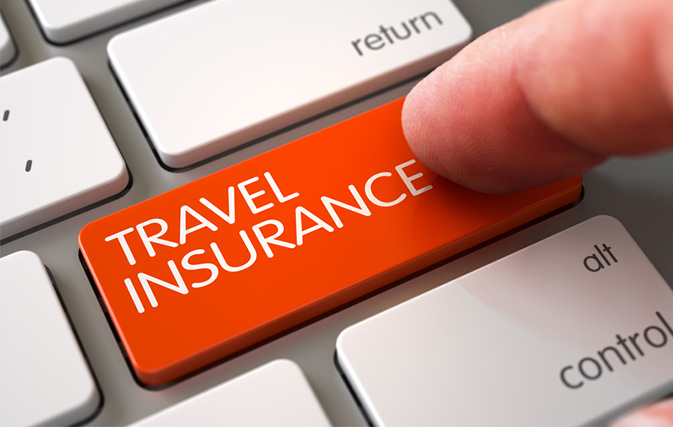TORONTO — The travel industry is still reeling from the news that all travellers must now show proof of a negative COVID-19 PCR test prior to boarding their flight to Canada, a new requirement announced by the federal government in the last days of December, with only a week’s notice.
While Canada’s airlines have already expressed their concerns over the news, with organizations from IATA to ACTA and ACITA weighing in on the issue, Canadian travellers are also expected to balk at yet another hurdle they must overcome before boarding a plane home.
Coupled with the ongoing 14-day quarantine, the new testing requirement, which comes at a traveller’s own expense, may deter even more Canadians from travelling at a time when the industry needs them to the most.
A PCR test, considered the gold standard in COVID-19 detection, differs from an antigen test, frequently referred to as a rapid test that garners results in as little as 15 minutes. A PCR test, which usually takes two or three days for results, differs in price around the world but generally costs anywhere from $100-$200, including in Canada where a handful of pre-testing programs are already underway.
Air Canada’s program with Shoppers Drug Mart, launched in November, is available to asymptomatic travellers with an upcoming international flight who require a negative COVID-19 test; various destinations, particularly in the Caribbean, currently require visitors to test negative for COVID-19 prior to arrival. These tests come at a cost of $199, plus tax, in Ontario, and $150, plus tax, in Alberta.
As an extension of the ‘Safe Travels Hawaii’ pre-travel testing program, WestJet, in partnership with DynaLIFE labs, is also offering pre-testing to Hawaii-bound Canadians in Ontario for $199 plus tax, in British Columbia for $250 plus tax, and in Alberta for $150 plus tax.
But for international travellers flying into Canada and Canadians returning home from abroad, the federal government’s new PCR testing rule requires them to take a PCR test while in destination within 72 hours prior to departure (those flying in from the Caribbean and South America can take their test within 96 hours before boarding, until Jan. 14). In Jamaica, for example, a PCR test costs about $115; in the United Kingdom, PCR tests performed by private companies usually range in the € 150 – €250 per person region but can cost more if choosing an express option.
And while Toronto Pearson’s new testing program and Calgary Airport’s pilot program provide free testing to international travellers upon arrival in Ontario and Alberta, they are completely voluntary and are designed to add another layer of protection for Canadian communities.
Though many airlines, including Air Canada and WestJet, and insurance companies like Manulife, Allianz and Blue Cross are already offering COVID-19 coverage, these plans generally do not cover the cost of testing for Canadians either departing on international flights or while in destination prior to returning home. But now that the federal government has mandated testing for all travellers to Canada, perhaps they will in the future?
Travelweek reached out to Canadian Life and Health Insurance Association (CLHIA), a voluntary trade association whose member companies account for 99% of Canada’s life and health insurance businesses, to ask if travel health plans – whether through an employer, credit card or individually purchased – will provide coverage for COVID-19 testing.
Short answer: no, but nothing’s off the table for now.
“Travel health plans by definition cover emergency services required at destination,” said Kevin Dorse, Assistant Vice President, Strategic Communications and Public Affairs. “A required and planned asymptomatic COVID-19 test prior to departure would not meet the definition of emergency services coverage as written today.”
But this isn’t to say policies won’t change in the future, adds Dorse.
“The situation continues to evolve and insurers are adapting their policies to reflect that, so this many change,” he said. “As always, we strongly encourage those planning travel outside Canada to talk to their travel insurance provider for more details about what is and is not covered under a particular policy.”
Travelweek also checked in this week with several insurance companies on the issue. Here are the responses from Ontario Blue Cross and Allianz Global Assistance.
At Ontario Blue Cross, Marketing Manager Natalie Correia tells Travelweek that PCR testing is not at all covered under its plans.
“The emergency medical care benefit covers diagnostic services in emergency situations when prescribed by a physician. A diagnostic test necessary to comply with government requirements is not considered a medical emergency,” she says.
And over at Allianz Global Assistance, which offers COVID-19 insurance and assistance for clients who test positive for COVID-19 while travelling, a COVID-19 test will only be a covered cost under the company’s plans if the test results come back positive.
“Both the cost of the test and the resulting medical costs or quarantine costs will be covered, subject to the terms and conditions of the policy,” confirms Julia Deanne Koene, Director of Corporate Communications at Allianz.
For additional context and travel tips outside of Canada, Canadians are encouraged to refer to CLHIA’s most recent advisory, available here.
Also, a Canadian government webpage with a list of countries and timelines and more information about the PCR test requirement can be found here. Also, to check listings for PCR test facilities, go to https://travel.gc.ca/travelling/advisories, click on the country followed by that country’s Health tab. Not all destinations have facilities listed.

